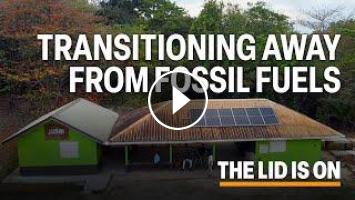The vast majority of small island developing States (SIDS) are heavily dependent on polluting, and expensive, fossil fuels for their energy needs: some spend around a quarter of their national budgets on imported fuel.
However, for Trinidad & Tobago, fossil fuels have been a boon to the economy: the country has exploited its oil and gas reserves for several decades and profited from the wealth. But now, those reserves are running low. Is this the moment for Trinidad & Tobago to kick the fossil fuel habit, and exploit the kinds of renewable resources that are abundant in SIDS?
Conor Lennon from UN News went to the capital, Port of Spain, to put the question to Sheena Gosine, a sustainable energy analyst at Trinidad’s Ministry of Energy; Kishan Kumarsingh, the head of Multilateral Environmental Agreements at the Ministry of Planning and Development; and Curtis Boodoo, lecturer and assistant professor at the University of Trinidad & Tobago, and an expert on the energy transition.
However, for Trinidad & Tobago, fossil fuels have been a boon to the economy: the country has exploited its oil and gas reserves for several decades and profited from the wealth. But now, those reserves are running low. Is this the moment for Trinidad & Tobago to kick the fossil fuel habit, and exploit the kinds of renewable resources that are abundant in SIDS?
Conor Lennon from UN News went to the capital, Port of Spain, to put the question to Sheena Gosine, a sustainable energy analyst at Trinidad’s Ministry of Energy; Kishan Kumarsingh, the head of Multilateral Environmental Agreements at the Ministry of Planning and Development; and Curtis Boodoo, lecturer and assistant professor at the University of Trinidad & Tobago, and an expert on the energy transition.
- Category
- United Nations
- Tags
- UN, United Nations, UNGA
Be the first to comment













